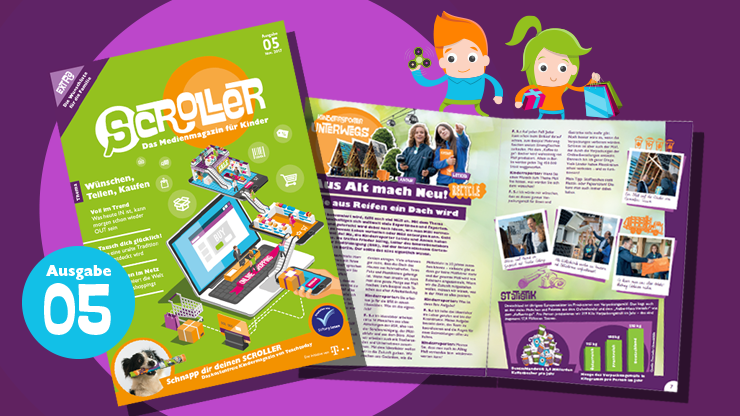Today, children between the ages of 6 and 13 receive an average of between 30 and 50 euros per month in pocket money (Kinder-Medien-Studie 2017). Added to this are additional monetary gifts, for example on birthdays or holidays. What do kids do with their money? According to the Trend Tracking Kids-Studie, they spend most of their money on sweets (€435 million a year), clothing and accessories (€245 million) and reading materials such as books, comics and magazines (€230 million). 14 percent of young people receive between 51 and 100 euros a month, 16 percent even between 501 and 1000 euros (GfK Market Research 2015). Around 57.9 percent of young people spend their pocket money on clothing. (Statista).

More and more young people are now using the Internet for online shopping. Accordingly, the purchasing power of young people also plays a role in companies when it comes to how young shoppers can be targeted online. For example, the more personal data about the respective target group is known, the more precisely individual interests can be serviced and purchasing decisions can be influenced if necessary. Recognizing, critically classifying and aligning this so-called targeting, for example targeted advertising on websites or social networks, with their own needs is a challenge not only for adolescents.
For example, 16 percent of the young people surveyed stated in a study on influencer marketing that they later bought a product seen used by an influencer (BVDW/Influry 2017). Influencers are personalities who have built up a fan base in social networks such as YouTube or Instagram and are perceived to have a high degree of authenticity by the community. Many influencers are also financed by paid product placements, which are not always marked as advertising for cosmetics, computer games, toys and everyday goods.
Nevertheless, almost a third of those surveyed (29 percent) regard them as a credible source of product recommendations. Influencers have so far found themselves in a legal grey area with unmarked product advertising, because it is not yet clear from a legal point of view how the labelling of influencers’ product placements must be designed to avoid being classified as surreptitious advertising.
In principle, online purchases are subject to the same requirements as outside the digital world. If a child is younger than seven years of age, he or she is considered incapable of contract and cannot conclude purchase contracts. From seven to 17 years of age, adolescents have limited legal capacity. This means that they may make minor purchases without the consent of their legal guardians. According to the laws in Germany covering pocket money, the value of the purchased goods must be within the range of the pocket money. It is not possible to make major investments or maintain long-term business ties such as installment payments or subscriptions.
However, online retailers usually do not check the age of their buyers, so that a purchase on account or the conclusion of a subscription becomes possible even for young buyers. According to the law, in such a case, the legal guardians have to give their consent either beforehand or afterwards. If this is not the case, as when automatic account debits are involved, the purchase contract is null and void.
Children often have a say in family outings or grocery shopping, for example, and many of them are free to decide on the use of their pocket money. Parents and guardians can convey competent and critical consumer behavior to their children through a constant exchange and self-responsible action.
 No need to worry about opening hours when shopping online. You can compare prices just as quickly.
Digital shopping tour
No need to worry about opening hours when shopping online. You can compare prices just as quickly.
Digital shopping tour
 More and more people are sharing, exchanging or borrowing things instead of buying them.
Is sharing the new shopping?
More and more people are sharing, exchanging or borrowing things instead of buying them.
Is sharing the new shopping?
SCROLLER

SCROLLER

Mobile Guide

